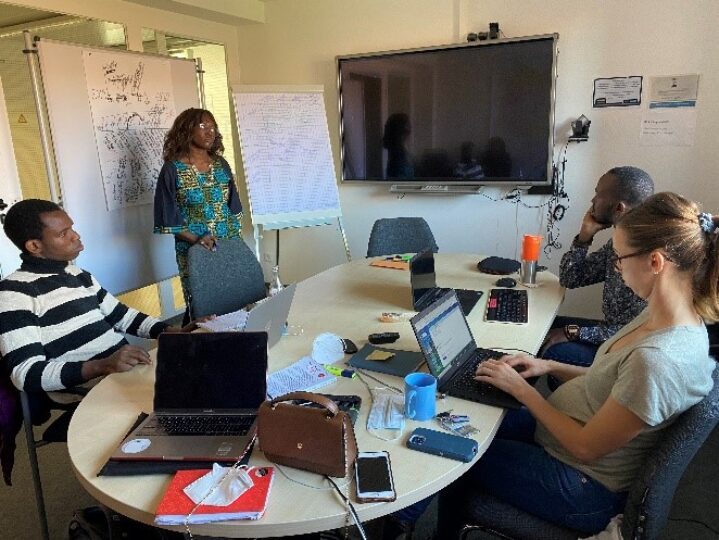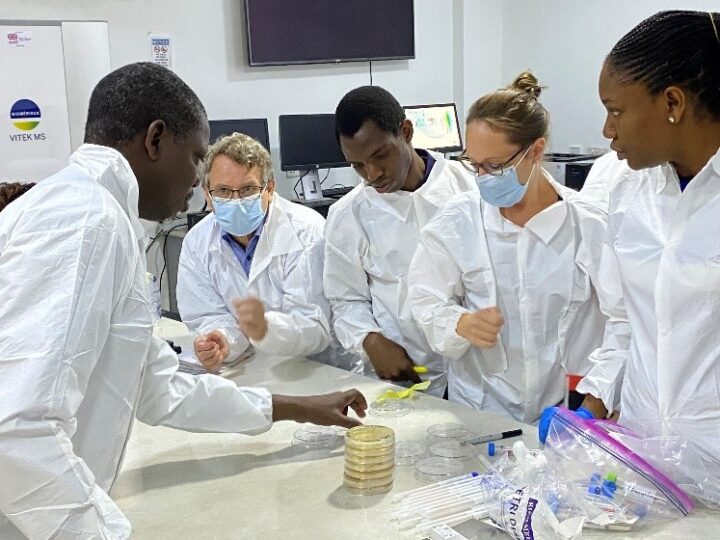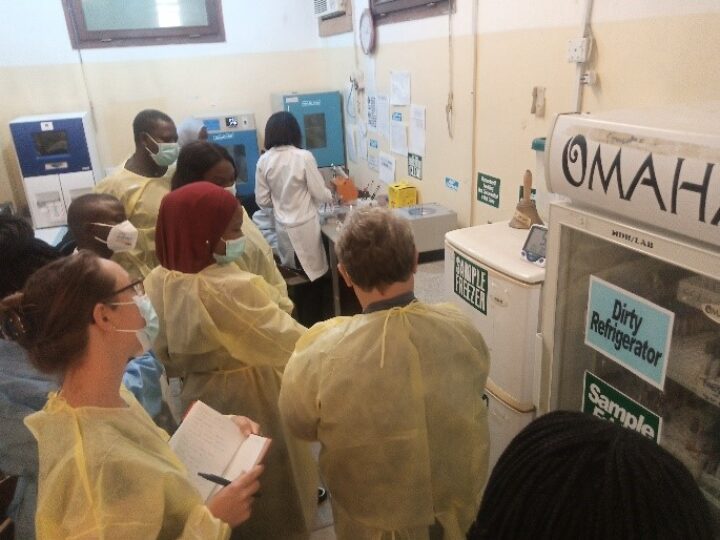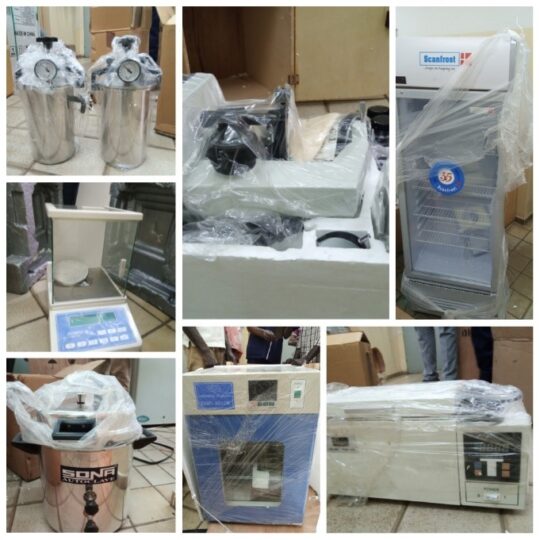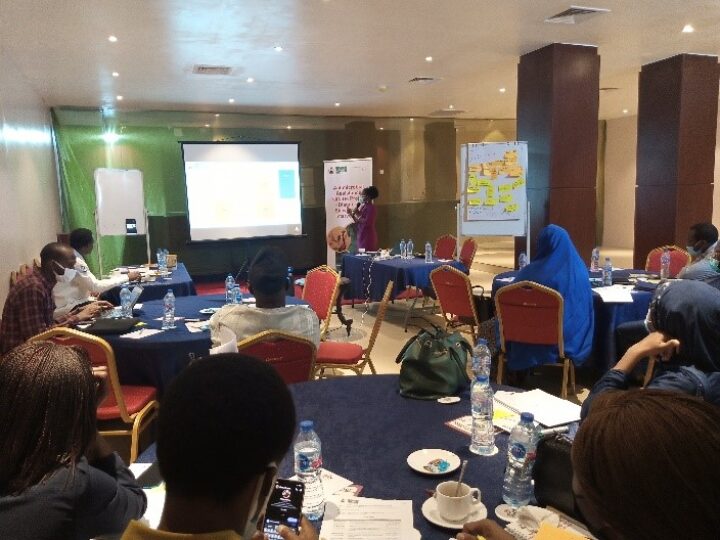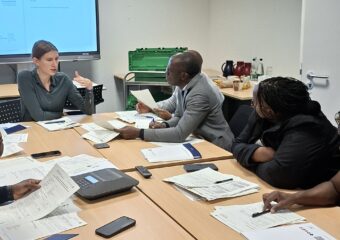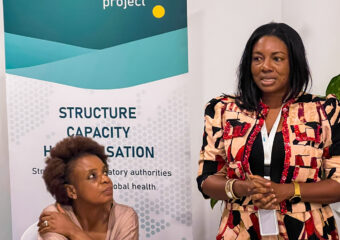NiCaDe AMR End of Phase I
Our diagnostic stewardship intervention study that started in 2019 comes to an end. The post-intervention data collection just started after a successful intervention phase. During a joint project review meeting in Berlin, the implementation of phase I and lessons learned were discussed.
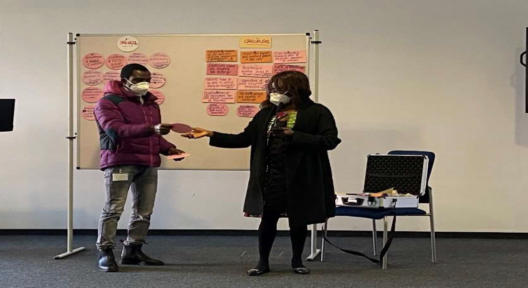
Diagnostic stewardship study
To evaluate the diagnostic stewardship interventions, a study with pre- and post-intervention data collection was conducted in two pilot secondary health care facilities in Abuja, Nigeria. The pre-intervention data collection took place from September 2020 to July 2021 (see report from December 2020). Due to the COVID-19 pandemic and the engagement of the project experts at NCDC and RKI in the response, some activities were delayed and shifted to virtual communication tools (see report from June 2020).
Intervention phase
In August 2021, the intervention phase kicked off with a physical two weeks multi-disciplinary training of staff from the pilot facilities. This was followed by multiple pre- and post-analytic as well as theoretical and practical laboratory training sessions. The training was interactive and focused on understanding of the challenges in the diagnostic pathway. This was based on the previously collected baseline data and the contextual perspectives of the frontline health workers from the hospital. The main outcome of the training workshop was the co-development of on-ground specific ideas to improve bedside sepsis identification, sample collection, interdisciplinary communication methods and antibiotic selection in line with the overall strategy of the NiCaDe DS project. This was accompanied by the formation of Diagnostic and Antimicrobial Stewardship (DAMS) Teams in both facilities. IT solutions for rapid communication of microbiology results and how the results feedback form could be imbedded in the already existing electronic medical record system. To support laboratory capacity, improved laboratory equipment and materials were procured and laboratory staff were trained, accordingly.
In November 2021, senior staff of RKI travelled to Nigeria to join in a series of high level and national technical meetings planned to coincide with the Antibiotics Awareness Week (NAAW) 2021. The AMR situation and use of AMR data in Nigeria and Germany were discussed during a surveillance exchange workshop. The RKI team also held a high-level meeting with the newly appointed Director-General of the NCDC, Dr. Ifedayo Adetifa, to discuss strategic issues for the NiCaDe project.
Microbiology mentorship
To support mentorship and sustainability, the bacteriology lead laboratory scientist from the National Reference Laboratory for AMR in Nigeria visited RKI as a guest scientist for four weeks in 2021 to understand the National Reference Laboratory activities and quality AMR data management. A local microbiological expert implemented a laboratory mentorship strategy for the two pilot facilities with NCDC to support microbiology laboratories continuously.
This was supported by two microbiology consultants from RKI who visited the laboratories and the National Reference Laboratory for AMR in Nigeria in August 2022.
Review meeting
In October 2022, AMR NCDC colleagues joined the team at RKI for two weeks to conclude the implementation of the project’s first phase and to discuss successes and challenges. This included a three-day joint project review meeting with representatives from all three NiCaDe subprojects. The meeting was a great success for the NiCaDe project, and all participants are looking forward to continuing the collaboration in phase II.
Final steps
After finishing the post-intervention data collection, the data will be compared to the pre-intervention data with qualitative and quantitative data analyses.
Date: December 2022

